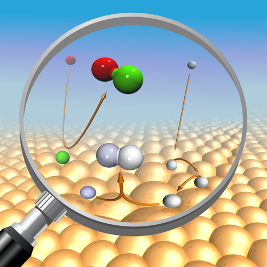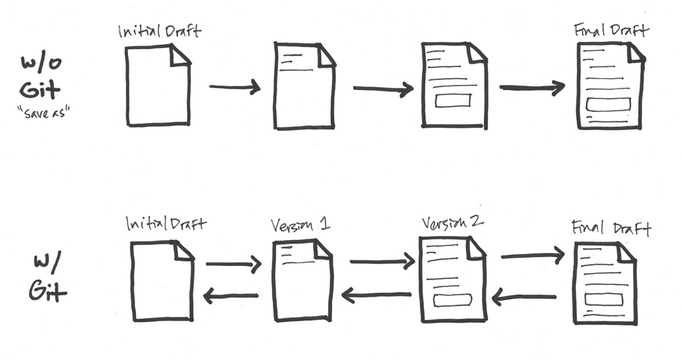- Docente titolare: Angela Bassoli
- Docente titolare: Sara Panseri
- Docente titolare: Claudia Picozzi
myAriel
Risultati della ricerca: 212
Assays in experimental biology generate large amounts of data that must be critially assessed and processed appropriately to extract meaningful biological knowledge and generate testable hypotheses. Proficiency in data wrangling and data visualisation, the ability to unravel complex relationships in biological data and the ability to create transparent and reproducible workflows constitute crucial skills for the modern biologist. In addition, a good understanding of principles of experimental design are central to the critical assessment of experimental data. With data as the focus and R/RStudio as the tool, students are exposed and trained in a unified view of experimental design and data analysis. Students will develop expertise in data organisation, visualisation, analysis and interpretation using both conventional biological data and complex large scale (BIG) biological data.
The aims of this course are to enable students to (i) analyse data from a well-designed biological experiment, (ii) create a transparent reproducible analysis workflow using Rmarkdown in R/Rstudio that includes exploratory analyses, statistical modelling, model assessment and parameter estimation, (iv) understand the power and pitfalls of statistical analyses, (v) implement methods for the analysis of gene expression (RNA-Seq) data and the interpretation of the final results.
Throughout the course, we will use R programming language and the R/Studio software environment.
- Docente titolare: Matteo Chiara
BOTANICA AGRO-AMBIENTALE E APPLICATA
Obiettivi
Il corso ha l'obiettivo di fornire:
- le basi chimiche, fisiche e biologiche degli organismi viventi in relazione ai processi evolutivi e con particolare attenzione alla organizzazione morfofunzionale della cellula eucariotica vegetale;
- la conoscenza dell'organizzazione strutturale e funzionale delle piante di interesse naturalistico e agro-alimentare;
- la conoscenza dei principali gruppi sistematici in cui sono ripartite le piante;
- gli elementi di floristica volti all'identificazione delle piante.
Modalità d'esame
Esame orale
Docenti
Prof.ssa Anna Giorgi - anna.giorgi@unimi.it
Dott. Luca Giupponi - luca.giupponi@unimi.it
- Docente titolare: Annamaria Giorgi
- Docente titolare: Luca Giupponi
- Docente titolare: Marco Marelli
- Docente titolare: Alberto Pisoni
- Docente titolare: Danilo Benozzo
- Docente titolare: Claudia Casellato
Il corso è dedicato a due argomenti principali: la calcolabilità e la complessità computazionale. Nella prima parte la nozione di calcolabilità viene introdotta usando semplici linguaggi di programmazione. In particolare si illustra e si giustifica la tesi di Church, si presentano i problemi indecidibili fondamentali e i risultati principali di teoria della ricorsività. La seconda parte è dedicata alla complessità computazionale dei problemi decidibili, ovvero all'analisi della quantità di risorse (tempo di calcolo e spazio di memoria) richiesta dai corrispondenti algoritmi. In particolare vengono studiate le principali classi di complessità in tempo e spazio e le proprietà dei problemi NP-completi.
- Docente titolare: Massimiliano Goldwurm
Il Calcolo delle Variazioni è un settore dell'Analisi Matematica di grande importanza per la modellizzazione e la risoluzione di problemi geometrici, fisici e meccanici.
Si partirà con una panoramica sui classici problemi variazionali
unidimensionali, proseguendo con lo studio del Metodo Diretto
nel Calcolo delle Variazioni. Passeremo poi ad esaminare i metodi variazionali per lo studio delle equaizoni alle derivate parziali nonlineari, con particolare attenzione ai cosiddetti fenomeni critici legati alla perdita di compattezza.
- Docente titolare: Cristina Tarsi
The aim of the course is to give students all the possible tools to be able to evaluate the type of reactor that is best for the chemical process being studied. Process optimization and basic cost evaluation will be taken into account.
The students will undertake numerical calculations solved either manually or with computational tools, to solve practically relevant examples.
The students should be able to solve practical examples and exercises either manually or through computationally implemented scripts on the following topics:
- Ideal batch reactor
- Ideal Plug flow continuous reactor
- Ideal Continuously stirred tank reactor
- Non ideal mixing
- Non ideal heat transfer
- Advanced chemical kinetics
- Mass and energy balances on single equipment and sections of the plant.
- Docente titolare: Claudia Letizia Maddalena Bianchi
Un cordiale benvenuto al Corso di Chimica Analitica I!
Ci troviamo in aula V1 (settore didattico "Didatteca" di Via Venezian 21) martedì e giovedì dalle 8.30 alle 10.30.
Arrivederci alla prima lezione martedì 25 febbraio!
Patrizia Mussini, docente del corso
- Docente titolare: Patrizia Romana Mussini
Un cordiale benvenuto al Corso di Chimica Analitica I!
Ci troviamo in aula CH (Dipartimento di Chimica) lunedì e mercoledì dalle 8.30 alle 10.30.
Arrivederci alla prima lezione lunedì 24 febbraio!
Patrizia Mussini, docente del corso
- Docente titolare: Patrizia Romana Mussini

Il corso si pone come obiettivo di fornire allo studente:
- le conoscenze che stanno alla base della progettazione e sviluppo di nuovi principi attivi aventi i requisiti necessari per poter diventare dei candidati farmaci;
- la conoscenza delle proprietà, dei meccanismi d'azione e dell'utilizzazione delle varie classi di farmaci trattate;
- le conoscenze fondamentali sui rapporti struttura-attività ai fini di una più razionale progettazione mirata ad un effetto terapeutico scevro da controindicazioni e da effetti tossici;
- indicazioni relative alle metodiche sintetiche utilizzate per la preparazione di alcuni dei farmaci trattati.
- Docente titolare: Alessandro Pedretti

Il corso fornisce una sistematica e dettagliata interpretazione microscopica della
termodinamica, una prima esposizione dello stato solido della materia e delle proprietà dei materiali, ed una introduzione alla teoria cinetica dei gas e sua applicazione ai
fenomeni di trasporto e alla cinetica chimica.
- Docente titolare: Rocco Martinazzo
Benvenuti nel corso di Chimica generale e inorganica, che comprende lezioni frontali, esercitazioni in aula e esercitazioni in laboratorio.
In questa piattaforma troverete il materiale didattico proposto e tutte le informazioni e annunci che noi docenti vorremo darvi durante il semestre.
Per accedere alla classe virtuale che ho creato sulla piattaforma TEAMS "Chimica generale VIT EN 2024-2025" dovete utilizzare il seguente codice: xoje0I7.
Indirizzi e-mail a cui potete contattarci per informazioni inerenti al corso e al laboratorio:
cristina.bellucci@unimi.it, barbara.brunetti@unimi.it
- Docente titolare: Maria Cristina Bellucci

Familiarity with any Linux/MacOs/Win filesystem and with Spreadsheet operations is preferable.
- Docente titolare: Alessandro Provetti
The course is an introduction to the comparative analysis of
political institutions, and to the dynamics of modern democracies. It focuses
mainly on electoral systems, party systems, executives, parliaments and other
elements of the institutional setup of different countries, as well as the
performance of diverse political systems.
Students learn how to apply concepts and methods to the analysis of everyday political problems, in order to critically read articles in leading newspapers, blogs, and weekly journals. They will also use statistical tools and the Stata software to perform simple quantitative analyses on economic and political data.
- Docente titolare: Marco Giuliani

This course aims to present some of the major topics of the current debate in the field of comparative politics, illustrate the way in which (mostly) quantitative models help understanding the effects of different institutional setups, and provide an in-depth understanding of how the main political processes operate within democratic countries.
The course is usually organized around three separate models, focusing around differeent political institutrions and especially electoral and party systems. It fits into the overall organization of the EPS Master programme by familarizing its students with the empirical test of theoretical oriented hypotheses, and with the relationships between political and economic arenas.
- Docente titolare: Marco Giuliani
The course aims at providing students with the method, tools and categories of comparative law to be applied to understand, from a diachronic and synchronic point of view, the legal traditions and the variety of forms of State, forms of Government and centre-periphery relations (included secession processes) of countries belonging to different geopolitical areas and sharing different concepts of Constitution. Therefore particular attention will also be paid to the crisis of constitutionalism and to new conceptual categories, such as "abusive constitutionalism", "authoritarian constitutionalism", "hybrid constitutionalism" and "unstable constitutionalism", with a view to studying new phenomena regarding the legal transplant of human rights protection and the separation of powers principles only in nominal terms.
- Docente titolare: Caterina Filippini
The first learning objective is to enhance individual conflict management competence. A conflict management competence involves developing cognitive, emotional, and behavioral skills that enable you to manage your own emotions, clarify what is happening in the situation, and engage constructively with the other person to find solutions to issues arising from the conflict.
The second learning objective is to recognize the most common biases, both cognitive and motivational, that can trap negotiators and find and adopt strategies to cope with them.
The third consists of developing a theoretical and methodological framework that participants can use to analyze, prepare for, and execute most negotiations they might encounter. Participants will build a kind of toolkit of principles, strategies, and tactics to execute each stage of the negotiation process to the final agreement.
1.Understand the sources and the stages of the conflict process.
2.Recognize the differences between emotional, cognitive, and behavioral aspects in conflict management.
3.Assess both party's BATNA and evaluate the ZOPA.
4.Recognize the most common negotiator mistakes.
5.Recognize and find ways to overcome the most common biases (cognitive and motivational).
6.Recognize and develop strategies of influence in given situations.
- Docente titolare: Roberta Prato Previde
- Docente titolare: Roberta Margherita Prato Previde Albrisi Colombani
The course aims to provide students with a theoretical and conceptual
toolkit to critically understand the historical roots, sociological
aspects, and political implications of consumption, with a focus on
contemporary and digital consumer cultures.
The course is composed
of three main parts. The first one looks at the historical development
of consumer societies, also focusing on the recent and widespread
datafication of consumption and platformization of markets. The second
part covers sociological theories on taste, consumer identities,
consumption collectives, consumer imaginaries, and resistance. The third
part deals with three major debates about the ethical and political
implications of contemporary consumer cultures: a) the ethics of
marketing in the age of surveillance capitalism; b) consumption and the
reproduction of social inequalities; c) consumer culture and
environmental challenges. Students will work both individually and in
groups in order to analyze and discuss empirical cases of consumption
practices and lifestyles, thus developing capacities of critical reading
and writing, as well as oral presentation and teamwork.
- Docente titolare: Massimo Airoldi
. What is a
corporation? The foundations of corporate law
· Corporate law in action/1: Agency problems and legal
strategies
· Corporate law in action/2: The interests of shareholders
as a class
· Corporate law in action/3: Minority shareholders and
non-shareholders
· Corporate law in action/4: the protection of creditors
· The theory of the corporation: the agency paradigm
· The theory of the corporation: an alternative view
· CSR and the corporate interest debate/1: the shareholder
value, and a critique
· CSR and the corporate interest debate/2: the team
production theory.
· From CSR
to sustainability: Due diligence and sustainable corporate governance;
. The corporate purpose debate
· The benefit corporation
· Stakeholder engagement and disclosure of non-financial
information - from NFRD to CSRD
- Docente titolare: Alessandra Stabilini